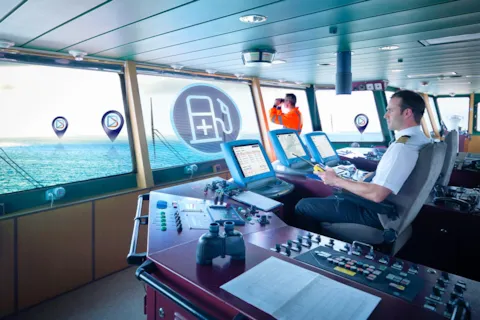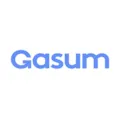Get regular maritime industry insights!
Don’t be left out. Join the many others and sign up today to receive the latest insights.
Sign up
With the launch of FuelBoss, bunker operators now have the capability to offer their services to their customers in digital form via a common industry platform. Gasum shares insights on their first experiences and the benefits FuelBoss holds for them and their customers.


Jacob joined Gasum in 2019 and is heading the maritime sales organization, whose focus is to provide cleaner energy to the maritime industry. He is a master mariner and holds a degree in maritime law. With more than 20 years of experience in the maritime sector, he started his career at sea as an apprentice. When switching to shore, he first became involved in the energy business at Neste, a Finnish oil company. Amongst other functions, he headed the maritime fuels and services business there.
What were Gasum’s reasons for joining FuelBoss?

We have three strategic pillars at Gasum’s maritime business. One is to expand our business geographically. A second is to develop customer solutions and the third is to promote our maritime brand. FuelBoss relates to our second strategic pillar. One big strategic goal of our maritime solutions is the digitalization of the maritime business at Gasum. FuelBoss provides us with a digital platform for LNG that we can utilize and don’t need to invent ourselves. We also see the value that DNV GL has been involved in the development process.

Why did you perceive DNV GL as a facilitator so beneficial?

The strong organization that is behind the system. DNV GL has a high reputation in the market. DNV GL brings credibility to such a system. If anyone can set up such a universal system, with more than just a company application, I think it is DNV GL with its integrity and expertise. I don’t think that we would have so much leverage with Gasum building such a platform, nor would our competitors use it. The bunker operations checklists, the time reports and in the future possible quality reports from the delivered gas are things we find valuable. As they are DNV GL certified, they have of course more credibility. Such an industry standard is much more easily implemented by having DNV GL in the game.

Which market need did you see that FuelBoss helps to meet?

Overall we want to optimize our services so they become more effective. To achieve that goal, digitalization is a key driver. FuelBoss helps us to take a major step towards digitalization and enables certain services for our customers. When we thought about what would need to be the first to optimize, we came up with digitalizing the purchasing of our services and gas and create an improved ordering structure. That can be done with the FuelBoss solution.

What benefits do you see your customers getting from FuelBoss?

We want to make things easier for our customers and provide them a solution for that. With FuelBoss we provide a more professional and easier way to order fuel, which also helps customers to standardize their processes. But it also streamlines and optimizes our processes. FuelBoss also provides a platform where all the communication with the customer is gathered.

What other functions could further drive the business?

We see FuelBoss as a stepping stone towards further digitalization of the fuel market. The Business Intelligence tool that is built into it; the ease of purchasing any amount of liquid biogas (LBG). FuelBoss will enable the decarbonization of shipping in the long run. A new solution we are developing with some customers now is to take over their bunker operations. So, they do not need to do any purchasing anymore, but have a platform with FuelBoss where they can monitor their tank levels and get bunkering reports. That means transparency between the vessels and Gasum’s operations desk. If a vessel needs to be refilled, then we will agree on a port where it will happen. The possibilities are endless, whatever you can do with digitalization.

What key trends do you see for the LNG bunker market?

Hopefully there will be more standardization. One level we want to reach is avoiding unnecessary discussions as we had them in the mature market on availability, safety issues and things like that. We do not want to neglect safety as such, but the standards are very good today and we need to achieve a new normal in ports. Some ports are very conservative to safety issues, even though they claim to be LNG friendly and see it as the fuel of the future. It is still very hard to get permissions to bunker LNG in some ports. Hopefully, we will see a normalization, so the hurdles to bunkering LNG will become lower. I also foresee that more biogas will be pushed into the total fuel mix. We already have customers that take in a 10% plan on liquefied biogas and we have done several field tests with LBG. And of course, a further digitalization of the offerings. We see this not as a revolution but as an evolution.

Don’t be left out. Join the many others and sign up today to receive the latest insights.
Sign up